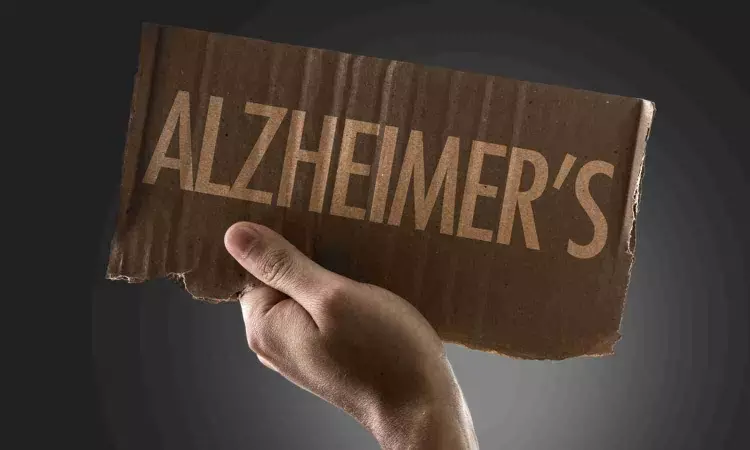- Home
- Medical news & Guidelines
- Anesthesiology
- Cardiology and CTVS
- Critical Care
- Dentistry
- Dermatology
- Diabetes and Endocrinology
- ENT
- Gastroenterology
- Medicine
- Nephrology
- Neurology
- Obstretics-Gynaecology
- Oncology
- Ophthalmology
- Orthopaedics
- Pediatrics-Neonatology
- Psychiatry
- Pulmonology
- Radiology
- Surgery
- Urology
- Laboratory Medicine
- Diet
- Nursing
- Paramedical
- Physiotherapy
- Health news
- Fact Check
- Bone Health Fact Check
- Brain Health Fact Check
- Cancer Related Fact Check
- Child Care Fact Check
- Dental and oral health fact check
- Diabetes and metabolic health fact check
- Diet and Nutrition Fact Check
- Eye and ENT Care Fact Check
- Fitness fact check
- Gut health fact check
- Heart health fact check
- Kidney health fact check
- Medical education fact check
- Men's health fact check
- Respiratory fact check
- Skin and hair care fact check
- Vaccine and Immunization fact check
- Women's health fact check
- AYUSH
- State News
- Andaman and Nicobar Islands
- Andhra Pradesh
- Arunachal Pradesh
- Assam
- Bihar
- Chandigarh
- Chattisgarh
- Dadra and Nagar Haveli
- Daman and Diu
- Delhi
- Goa
- Gujarat
- Haryana
- Himachal Pradesh
- Jammu & Kashmir
- Jharkhand
- Karnataka
- Kerala
- Ladakh
- Lakshadweep
- Madhya Pradesh
- Maharashtra
- Manipur
- Meghalaya
- Mizoram
- Nagaland
- Odisha
- Puducherry
- Punjab
- Rajasthan
- Sikkim
- Tamil Nadu
- Telangana
- Tripura
- Uttar Pradesh
- Uttrakhand
- West Bengal
- Medical Education
- Industry
Women with early bilateral oophorectomy at high risk of Alzheimer's Disease, reports research

A new study published in the Journal of Alzheimer's Disease showed that Alzheimer disease risk is increased by early bilateral oophorectomy (BO). By 2050, it is anticipated that 12.7 million people 65 and older would have Alzheimer's disease (AD). Two-thirds of the individuals with AD are female. Therefore, reducing the number of people who acquire AD requires an awareness of the unique risk and resilience variables associated with AD in women.
The decrease of 17β-estradiol (E2) during menopause is a significant sex-related component. A few studies have examined women's risk for dementia from all causes using the UK Biobank, a prospective population-based database of over 500,000 people with comprehensive phenotypic and genetic data. However, the findings involving menopause are conflicting. In fact, there is currently ample evidence linking early BO to a higher risk of dementia and/or cognitive impairment. In order to compare the odds ratios of AD to those of women who experienced spontaneous menopause (SM), this study looked at the prevalence and determinants of AD in women with early BO.
Women with early BO or SM who were 60 years of age or older at baseline, with or without AD, were included in a UK Biobank cohort (n = 34,603). The ICD-10 or ICD-9 code associated with AD was used to determine AD. To model the relationship between menopausal type and AD, this study employed logistic regression. Age, education, menopausal age, hormone treatment (HT), APOE4, body mass index (BMI), history of cancer, and history of smoking were all model variables.
The odds of developing AD were 4-times higher for individuals with early BO than for those with SM. In the BO group, older age and APOE4 were linked to higher risks of AD. While ever using HT was linked to lower odds of AD exclusively for the BO group, more years of schooling were linked to lower risks of AD for both BO and SM.
Overall, the probabilities of AD in women with early BO were determined by this investigation. The probabilities of AD were significantly raised by early BO itself. In addition, among women with early BO, possessing one or more APOE4 allele was substantially associated with higher risks of AD. Higher BMI, more education, and ever using HT were linked to lower risks.
Reference:
Calvo, N., McFall, G. P., Ramana, S., Galper, M., Fuller-Thomson, E., Dixon, R. A., & Einstein, G. (2024). Associated risk and resilience factors of Alzheimer’s disease in women with early bilateral oophorectomy: Data from the UK Biobank. In Journal of Alzheimer’s Disease (Vol. 102, Issue 1, pp. 119–128). SAGE Publications. https://doi.org/10.3233/jad-240646
Neuroscience Masters graduate
Jacinthlyn Sylvia, a Neuroscience Master's graduate from Chennai has worked extensively in deciphering the neurobiology of cognition and motor control in aging. She also has spread-out exposure to Neurosurgery from her Bachelor’s. She is currently involved in active Neuro-Oncology research. She is an upcoming neuroscientist with a fiery passion for writing. Her news cover at Medical Dialogues feature recent discoveries and updates from the healthcare and biomedical research fields. She can be reached at editorial@medicaldialogues.in
Dr Kamal Kant Kohli-MBBS, DTCD- a chest specialist with more than 30 years of practice and a flair for writing clinical articles, Dr Kamal Kant Kohli joined Medical Dialogues as a Chief Editor of Medical News. Besides writing articles, as an editor, he proofreads and verifies all the medical content published on Medical Dialogues including those coming from journals, studies,medical conferences,guidelines etc. Email: drkohli@medicaldialogues.in. Contact no. 011-43720751


